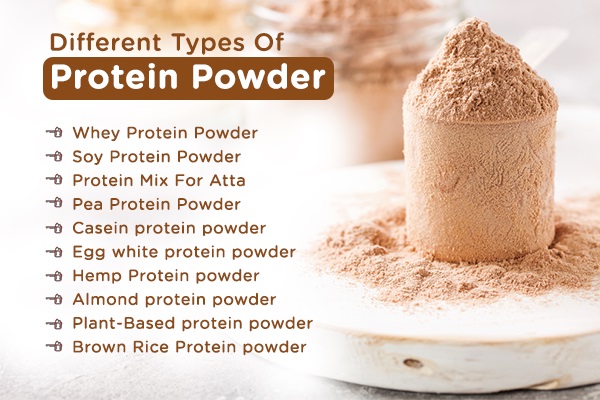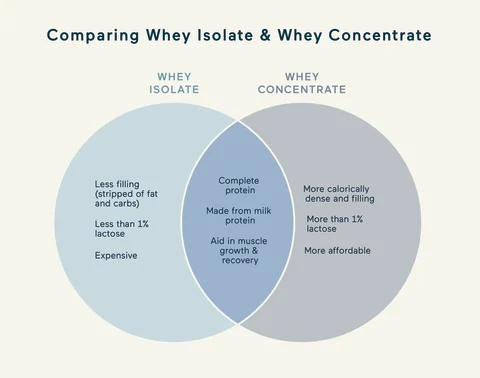Putting vanilla protein powder in your milk or drink might seem like a simple way to get healthier. After all, protein is essential for maintaining the strength of your muscles, the health of your bones, and the smooth operation of a variety of essential body systems. A diminished appetite is another reason why many people in their latter years do not consume adequate protein.
However, it is essential to proceed with caution in this situation. Despite the fact that it would appear to be safe, a scoop of chocolate or vanilla protein powder can actually offer some concerns to one’s health. It is recommended by Kathy McManus, a registered dietitian and director of the Department of Nutrition at Brigham and Women’s Hospital, which is connected with Harvard University, that protein powders be avoided unless they are used in particular circumstances and under the guidance of a trained professional.
Concealed Risks Associated with Vanilla Protein Powder
As is the case with other protein powders, vanilla protein powder can be associated with a number of hidden risks. Some important things to keep in mind are as follows:
Manufacturing Regulations
There is a concern regarding the manufacturing process of protein powders, such as those with a vanilla flavor, because of various manufacturing regulations. Due to the fact that these powders are considered to be dietary supplements, the regulations that govern their production and the information that must be included on the label are not as stringent as those that govern drugs. Because the Food and Drug Administration (FDA) does not strictly regulate the industry, we are unable to be absolutely certain that the information that is printed on the product’s label accurately represents the contents of the product.
Long-term Effects
There is a lack of information regarding the potential adverse effects of consuming a high amount of protein through supplements, and the use of these supplements for an extended period of time may have unidentified consequences.
Digestive Distress
People who are lactose intolerant or allergic to dairy products may have gastrointestinal pain after taking protein powders, particularly those that are derived from milk ,this is especially true for people who have dairy allergies.
Added Sugars and Calories
Some protein powders may include large quantities of added sugars (up to 23 grams per scoop) and can considerably boost the calorie count of a drink, potentially leading to weight gain and an unsafe jump in blood sugar.
Toxic Chemicals
According to a survey published by the Clean Label Project, a significant number of protein powders contained heavy metals (including lead, arsenic, cadmium, and mercury), bisphenol-A (BPA), pesticides, and other toxins that have been linked to cancer and other health issues. The presence of these poisons in considerable concentrations was found in certain items.
Obnoxious Dody Odor
Consuming an excessive amount of protein can lead to the development of ammonia as a byproduct, which can lead to an unpleasant odor in perspiration.
It is recommended that individuals take protein from whole foods such as nuts, seeds, low-fat dairy products, legumes, fish, poultry, eggs, and lean meat in order to reduce the likelihood of experiencing these undesirable outcomes. Only in certain circumstances, under the guidance of a medical professional, should protein powders be utilized. These circumstances include having trouble eating, having an impaired appetite, having surgical incisions, having pressure wounds, or having serious conditions that require additional calories and protein for healing.
You may also read: Keto Gummies Side Effects
How to Choose a Safe Protein Powder
To choose a safe protein powder, follow these tips: check the label for artificial sweeteners, quality ingredients, reputable brands, nutrition facts, protein source, amino acid profile, purity and safety, and experimentation. Choose powders with low sugar and calorie content, reputable brands, and third-party testing. Align with your fitness goals, avoid high-calorie powders, and choose protein sources like whey, casein, soy, or collagen. Choose powders free from contaminants and consider organic options or third-party certifications.
Different Types of Protein Powder and their Benefits

There is a number of different kinds of protein powders available, and each one has its own set of advantages. These are some typical varieties, along with the benefits that they offer:
Whey Protein
When it comes to whey protein: Whey protein is a type of protein that is derived from cow’s milk and is highly valuable due to its high amino acid content, its ease of absorption, and its ability to build muscle. In addition to containing all of the essential amino acids, it is a complete protein.
Whey Concentrate
Whey concentrate can have a protein content of up to 80% by weight, but it may also have higher quantities of carbs and fat in comparison to other varieties. Despite the fact that it is a more cost-effective alternative, it could have a larger calorie load.
Whey Isolate
Whey isolate experiences additional filtration in order to remove additional fat and carbs. It also includes at least 90 percent protein by weight. In addition to having less lactose and fat, it is a more pure version of whey protein.
Whey Hydrolysate
Because it has already been digested, whey hydrolysate encourages rapid absorption, making it an excellent choice for people who have digestive issues or who are searching for a quick way to absorb protein.
Casein
Casein, which is obtained from cow’s milk, is a protein that digests slowly and is typically ingested before going to bed in order to enhance nocturnal recovery and stimulate muscle growth.
Plant-Based Protein
Plant-based proteins such as pea, soy, or rice protein are suitable for those who are vegan or who have an allergy to dairy products. They are simple to digest and provide a wide range of amino acids among other benefits.
Egg Protein
Egg protein is another form of complete protein that contains all of the essential amino acids that are required for the growth and repair of muscle.
Each variety of protein powder possesses distinctive qualities that are tailored to meet the nutritional choices, fitness objectives, and digestion requirements of a certain individual. Individual requirements, such as taste preferences, dietary limitations, and fitness goals, should be taken into consideration while selecting the appropriate quantity of protein powder.
What are the differences between whey protein concentrate and whey protein isolate

In terms of their respective nutritional profiles and processing processes, whey protein concentrate and whey protein isolate are distinguished from one another by the following primary elements:
When compared to whey concentrate, whey isolate is subjected to a greater amount of processing, which results in a higher protein content per serving while simultaneously containing fewer carbs and lipids.
Protein Content
Whey isolate normally has a protein content of approximately 90% per scoop, however the protein content of whey concentrate can range anywhere from 25 to 89%, depending on the brand they are purchasing. In most cases, whey isolate is composed entirely of whey protein and does not contain any other macronutrients, whereas whey concentrate includes a certain amount of fat and carbohydrates in addition to protein.
Carbohydrates and Fats
When compared to whey concentrate, whey isolate contains a smaller amount of both carbohydrates and fats in its composition. Because of this, whey isolate is a better option for individuals who are trying to reduce the amount of carbohydrates and fats they consume.
Lactose Content
Whey isolate is often lower in lactose than whey concentrate, making it an acceptable option for persons with lactose intolerance or sensitivity.
Cost
The cost of whey isolate is higher than that of whey concentrate because of the higher purity of whey isolate and the processing processes that are implemented. On the other hand, consuming a greater quantity of whey concentrate can deliver a comparable amount of protein at a cheaper cost .
The Protein isolate is processed to have a higher protein content than whey protein concentrate, while also having a lower amount of carbs, lipids, and lactose per serving. Individual dietary requirements, financial constraints, and lactose tolerance are all factors that should be considered while making a decision between the two.

